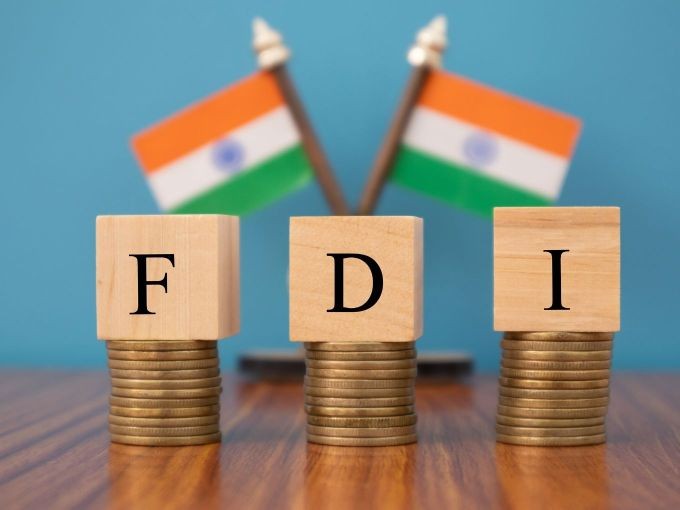


Your Legal Partner For
Your Legal Partner For
Your Legal Partner For
Your Legal Partner For
Your Legal Partner For
Your Legal Partner For
Your Legal Partner For
Your Legal Partner For
Your Legal Partner For
Your Legal Partner For
Your Legal Partner For

Our team of lawyers is fully equipped to guide you through all the legal and regulatory nuances that M&A, Private Equity and Venture Capital transactions entail.

We understand that Joint Venture and Strategic Alliance transactions mandate lawyers to understand more than just the legal issues.

We regularly advise our clients on general corporate matters and help them with drafting/reviewing of their commercial agreements.

Partners of our firm have extensive experience of advising clients on exchange control laws and facilitate foreign investment in seamless manner.

We have long standing associations with experienced legal professionals across the country and beyond to represent our clients and efficiently handle their disputes not only in different parts of India but also overseas.

The firm practice enjoys strong co-operation with leading management and financial consultants and is providing full spectrum of legal services in the field of restructuring, insolvency and bankruptcy in India.

We work with our clients in resolving the issues in and optimising their employment and labour structures to provide long-term solutions.

The firm has experience in real estate and has represented several builders and developers in complex legal issues concerning property.

The firm offers a comprehensive bouquet of services to its Non-banking Financial Companies (NBFC) clients. Our clients also include lenders, borrowers, advisers and other intermediaries dealing with NBFCs.

Data and privacy protection is turning out to be one of the most complex functions of a company. It is primarily because of the easy cross-border transfer of data.

We have rich and varied experience in handling dispute matters for clients whether solely as a shareholder of a company, or also as a party to a joint venture/shareholders� agreement.

We have rich and varied experience in conducting international and domestic arbitration under both Institutional and Ad-hoc Arbitration for our clients.

The firm has rich experience in delivering comprehensive solutions to its clients in all their transaction-based affairs.

Acumen Juris specializes in advising high-net-worth individuals on tax planning, wealth management, and succession strategies. Their expertise includes estate planning, asset protection, family office setups, and cross-border planning.

The firm specializes in all aspects of competition laws, including related to cartels, leniency applications, anti-competitive agreements, concession arrangements, abuse of a dominant position, joint ventures, distribution systems, merger control, and interface with sector regulators. The team strength in understanding the financial transactions and economic environment of the industry makes the firm unique and commandingin undertaking transactions on anti-trust laws.

The firm provides comprehensive legal services in capital markets, advising clients on transactions such as IPOs, takeovers, listings, and SEBI compliance. It also handles SEBI investigations, adjudications, and represents clients in securities-related litigation before various courts and authorities.

Our IPO Project Management services provide end-to-end strategic oversight, ensuring seamless execution of the IPO process, from corporate structuring to listing. We collaborate with key stakeholders to manage regulatory compliance, financial reporting, and governance while addressing ESG, taxation, and risk management concerns.

We provide comprehensive legal advisory and execution support to international clients for establishing and operating their business in India, ensuring seamless integration with regulatory, tax, and compliance frameworks. Our services cover inbound investment structuring, entity formation, regulatory approvals, post-incorporation compliance, and ongoing legal support.

Our Global Business Advisory and Setup practice offers comprehensive legal and strategic support for businesses seeking to expand internationally. We provide end-to-end services, including entity structuring, regulatory compliance, cross-border governance, and ongoing operational support, tailored to diverse markets and industries.

Acumen Juris offers specialized legal expertise in corporate criminal litigation, adeptly navigating complex cases involving financial crimes, regulatory investigations, and serious criminal allegations. Our seasoned advocates provide strategic counsel and representation for multinational corporations and their employees. We liaise with enforcement agencies to ensure effective, compliant, and tactful legal solutions.
About Acumen

The unforeseen pandemic COVID-191 has brought an extensive disruptive effect on the businesses, the world over. The rapid momentum of proliferation of COVID-19 and its lethal consequences has forced the nations globally to take unprecedented steps towards containing the outbreak and to recover from the pandamic, including the complete cessation of not only the international air traffic but also the domestic traffic within.

1. What is meant by the term ‘force majeure’?
Force Majeure is defined to mean “superior force” or “an event or effect that can be neither anticipated nor controlled”. Force Majeure events may include events such as floods, war, terrorism, earthquakes, other natural calamities or other events that may neither be anticipated nor controlled.

During this difficult time, with a view to boost the economy and as a reform to promote ease of doing business, the government of India has been making tremendous efforts in clearing backlogs/disputes/appeals under direct and indirect taxes which has resulted in the launched settlement schemes under direct tax (vivaad se vishwas scheme) & indirect tax (sabka vishwas scheme).

In its endeavour to contain COVID-19 pandemic, the government has promoting the idea of social distancing and issuing directions and taking other preventive and mitigating measures. Resultingly, with limited physical movement , accessibility of legal forums including the registry for the purposes of filing of proceedings (including petitions/applications/suits/appeals/all other proceedings) across India has become difficult for the litigants. Hence, Hon’ble Supreme Court acknowledging the unprecedented situation, , has taken suo moto cognizance and vide order dated March 23, 20201 (“Order”) has extended the period of limitation for all the proceedings with effect from March 15, 2020 till further orders.

The COVID -19 pandemic has caused disruption of business and life in the entire world and India is not immune to it either. The governments across the globe have taken several measures, some of which are unprecedented, in order to minimise the impact of this pandemic.

The unequivocal lockdown declared by the Government of India towards the end of March 2020 is primarily considered to be the most potential and effective preventive measure against COVID-19. However, everything has its own cost and in the present case, where India is undergoing economic slowdown, which may make many Indian corporates an easy target for acquisition by foreign entities

During this difficult time of global crises owing to COVID – 191 (“C-19”) pandemic, our Government has duly recognized the tough times Indian businesses are facing all over the nation and hence, Reserve Bank of India in consultation with the Government of India, and the Government of India itself has prescribed certain measures in order to liberalize the developmental and regulatory policies applicable on them. These measures are expected to mitigate the numerous disruptions on account of the C-19 pandemic and to ensure the continuity of viable businesses.

Foreign investments in India have always been regulated since the beginning. Supervision on such investments has seen a phase of liberal view as opposed to restricted view applicable in the earlier years. Hence, with a constant need to align the rules to accommodate the changing cross border investments trend, the Ministry of Finance (“MoF”) has come up with the second amendment on the recently notified Foreign Exchange Management (Non-Debt Instruments) Rules, 2019 (“Principal Rules”) vide issue of notified Foreign Exchange Management (Non-Debt Instruments) (Second Amendment) Rules, 2020 (“Amendment Rules”) on April 27, 2020

In view of the continuing restrictions on the movement of persons at several places in the country, Ministry of Corporate Affairs (MCA) now vide its circular dated 5th May, 20201 (“Circular-3”)has allowed companies to conduct their annual general meetings (AGM’s) through video conferencing (VC) or other audiovisual means (OAVM), during the calendar year 2020, subject to the fulfillment of the certain requirements. Earlier, MCA has provided provision for holding extraordinary general meetings (EGMs) through VC or OAVM facility upto 30th June, 2020 vide circular dated 8th April, 20202 (“Circular-1”) and 13th April, 20203 (“Circular-2”).

This chart seeks to outline the differences between a Non-Deposit Taking – Systematically Important NBFC (NBFC ND-SI) and Non-Deposit Taking – Non-Systematically Important NBFC (NBFC ND-NSI). For the said purpose, the criteria for deciding the status of systematically important NBFC is imperative and hence, the same is mentioned below

Severability Clause, or Separability Clause, a boilerplate clause often finds its little space in the last pages of a contract. This clause, since bearing considerable implications, is never overlooked by the parties to a contract. The Severability Clause is based on the ‘Doctrine of Severability’ or ‘Doctrine of Separability’, in according to which, in the event, any provision of a contract is rendered illegal or void, and therefore, not enforceable, the remaining provisions shall be severed and enforced independent of the unenforceable provision, provided such severance does not adversely affect the effectuation of the intention of parties to such contract.

The term ‘Waiver’ in general usage means to renounce any right or claim. It is a conscious informed decision that a party takes with respect to the renunciation of any right or claim that some other party is obliged to perform. Black’s Law Dictionary defined Waiver to mean the voluntary relinquishment or abandonment - express or implied - of a legal right or advantage;…The party alleged to have waived a right must have had both knowledge of the existing right and the intention of forgoing it. Accordingly, essential elements of a Waiver shall include

India is rapidly progressing in its developmental goals and more women are joining the workforce, resulting in the sexual harassment of women at the workplace is becoming increasingly prevalent in India. Sexual harassment at the workplace is an extension of violence in everyday life and is discriminatory and exploitative, as it affects women’s right to life and livelihood

Supplemental to our previous writing on ‘Investor Protection Rights - Share Subscription and Shareholders Agreement’ , this article focusses on various ‘Exit Rights’ sought and negotiated by the Investors while making investments, where such Exit Rights are aimed towards providing an exit opportunity to such an Investor in either of the following manners

India’s start-up sector is snowballing with new start-ups setting up every other day with novel business ideas. Also being witnessed is the considerable public investments and listing of the start-ups that have turned into a unicorn in a short span.

This Article outlines the criteria and process for registration of Alternative Investment Fund with the regulator of the securities market, Securities and Exchange Board of India (“SEBI”) pursuant to the provisions of SEBI (Alternative Investment Fund) Regulations, 2012, as amended from time to time.

Anti-Dilution means protecting against the dilution, and is the fundamental right sought by the investors globally to protect their investments from dilution. With the present era of technology, start-ups, and investments, there is a race amongst the start-up founders to innovate and develop new ideas and the investors to look for promising start-ups in order to invest. However, the investors simultaneously look for certain rights to protect themselves from dilution against any future pricing, since such pricing of new businesses are based on the prototype, the pilot model or the traction in the business model of the start-up, and is all notional and entirely pertains to the business it could develop and earn, and not the actual revenue stream or profit earnings. The investment strategy that the investors undertake is to invest in the potential start-ups, publicize it, develop it so that it reaches a certain benchmark, and then re-invest, publicize and develop it and keep repeating this process, but every time at a higher valuation, thereby increasing the worth of the start-up.

Foreign Direct Investment (FDI), in addition to being a key driver of economic growth, has been a significant non-debt financial resource for India's economic development. Foreign corporations invest in India to benefit from the country's particular investment privileges such as tax breaks and comparatively lower salaries. This helps India develop technological knowhow and create jobs as well as other benefits. investments have been coming into India because of the government's supportive policy framework, vibrant business climate, rising global competitiveness and economic influence.

The Indian gaming market growing at a CAGR of 30% is expected to grow from $2.8 billion in 2022 to $5 billion in 2025. The number of gamers is expected to rise from 420 million in 2022 to 500 million by 2025. Considering the evolution of the industry and the involvement of public at large, the government with a view to safeguard the public money from the detrimental effects of online gaming decided to provide for a regulatory mechanism and thus has recently released draft amendments to the Information Technology (Intermediary Guidelines and Digital Media Ethics Code) Rules,2021 (�the 2021 Rules�) to bring online gaming intermediaries operating online games under the ambit of the Rules.

Non-Banking Financial Company (NBFC) is a company registered under the Companies Act, 2013 of India, they operate in the financial sector providing a variety of financial services. These are financial institutions that offer various banking services, similar to banks, but they do not hold a banking license. NBFCs can provide services such as loans and advances, acquisition of shares/stocks/bonds/debentures/securities issued by government or local authorities, leasing, hire-purchase,
The Bar Council of India does not permit advertisement or solicitation by advocates in any form or manner. By accessing the website by clicking on 'I AGREE', the user acknowledges and confirm that the user wishes to seek or gain more informations relating to Acumen Juris of his/her own accord and that there has been no form of solicitation, advertisement or inducement by Acumen Juris or its members.
The content of this website is for informational purposes only and should not be interpreted as soliciting or advertisement. Any transmission, receipt or use of this site is not intended to, and will not, create any lawyer-client relationship.
No material/information provided on this website is in the nature of the legal opinion or otherwise amounts to any legal opinion. Acumen Juris shall not be liable for consequences of any action taken by relying on the material/information provided on this website. In cases where the user has any legal issues, he/she in all cases must seek independent legal advice.
The contents of this website are the intellectual property of Acumen Juris.